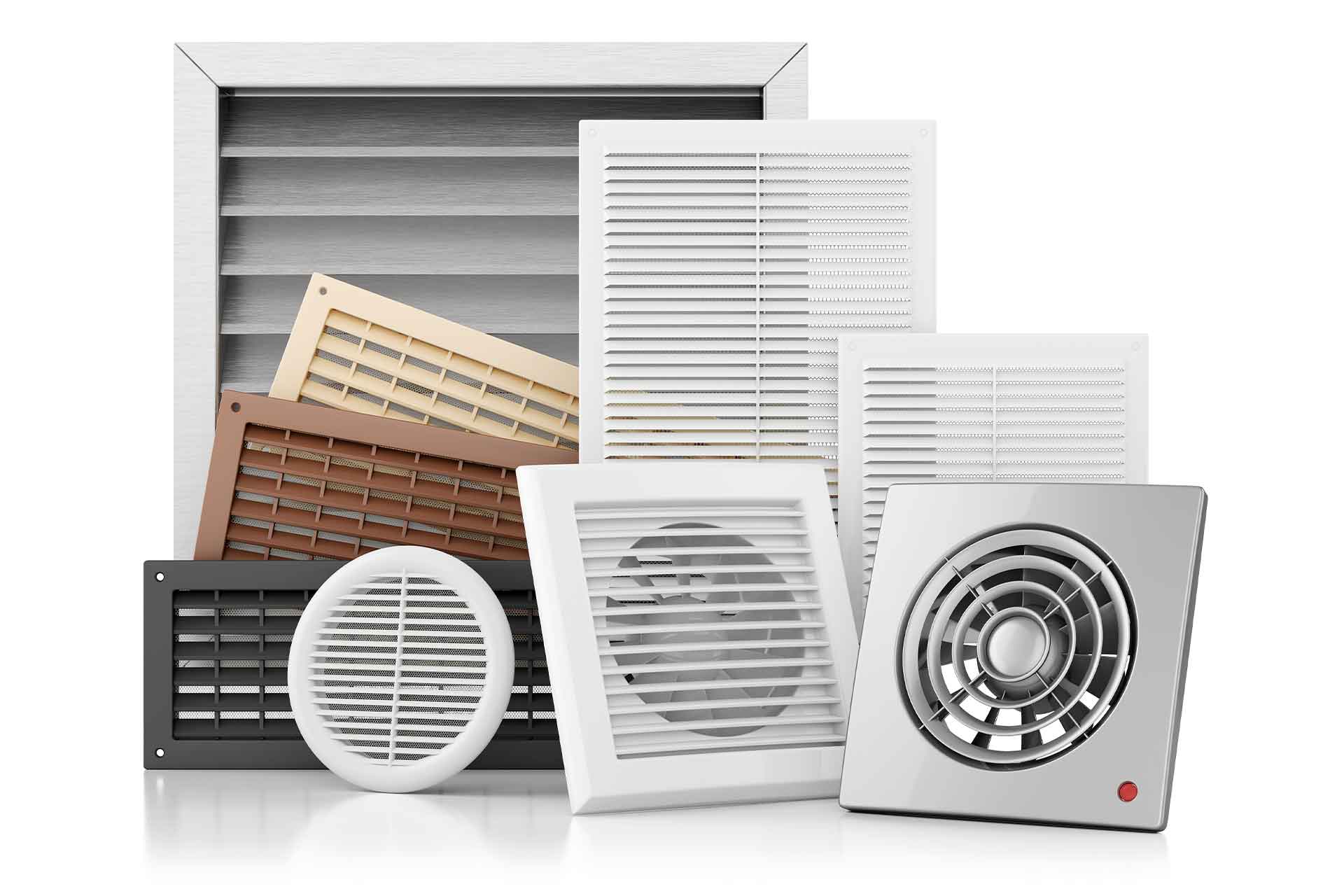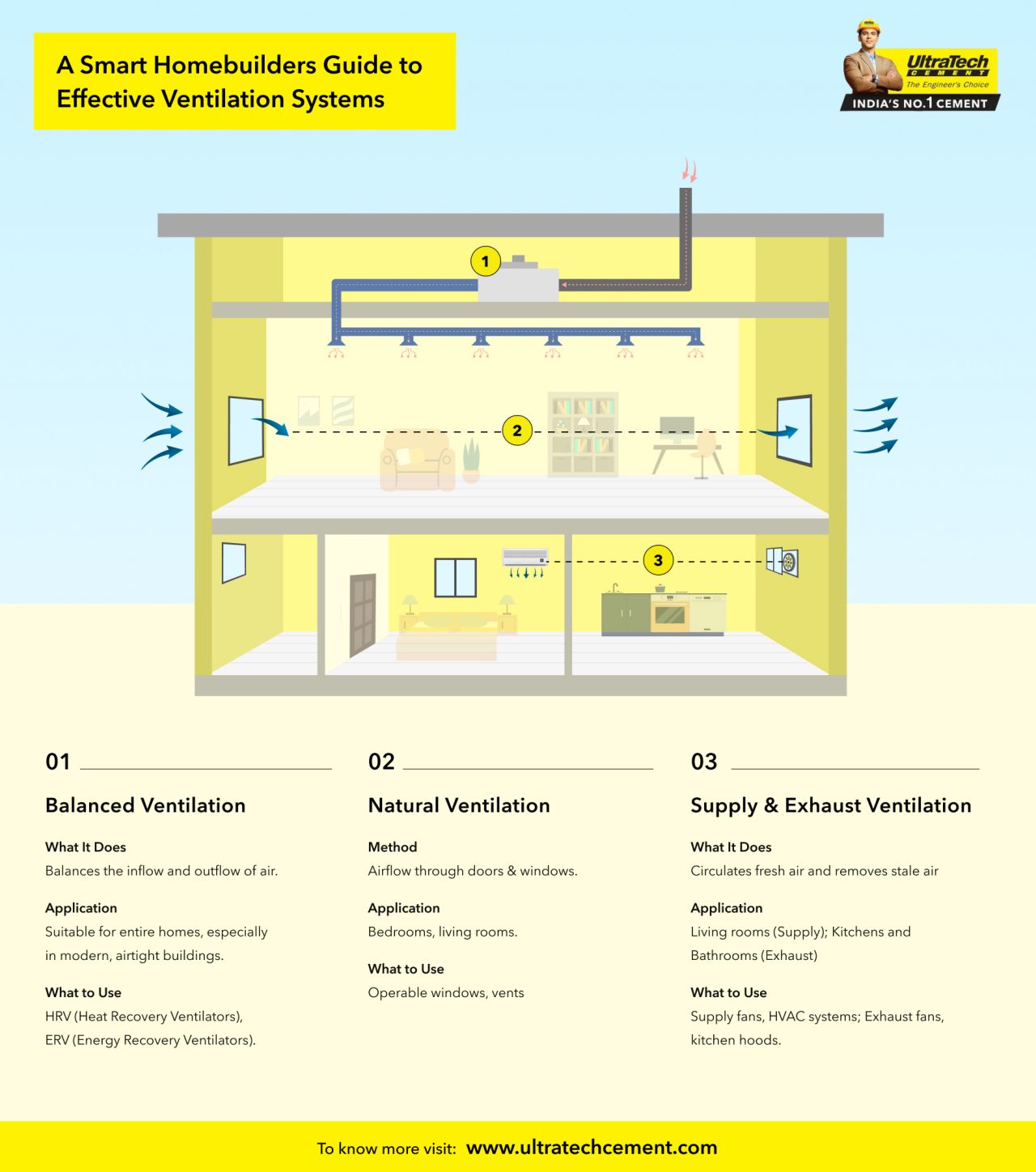The Duty of Home Air Flow in Avoiding Mold And Mildew and Indoor Allergens
Home air flow is an important component in keeping a healthy interior atmosphere. It regulates moisture levels, which can protect against the growth of mold and mildew and the build-up of irritants. Numerous home owners neglect the value of proper ventilation, usually bring about unseen problems. Recognizing how air flow systems feature and their impact on air quality might be the trick to a much healthier home. What steps can be required to boost these systems effectively?
Comprehending Home Air Flow Equipments
While many house owners may overlook the significance of air flow, understanding home air flow systems is crucial for keeping interior air high quality and preventing mold growth - Home Ventilation Melbourne. These systems promote the exchange of stale indoor air with fresh exterior air, successfully minimizing contaminants and moisture degrees. Common kinds consist of all-natural air flow, which relies upon wind and temperature level distinctions, and mechanical air flow, which uses fans and ducts to regulate air movement. In addition, well balanced air flow systems integrate both techniques to enhance air quality. Correctly designed and maintained ventilation systems can aid manage temperature level and moisture, making sure a comfy living atmosphere. House owners must take into consideration variables like home format, environment, and tenancy when selecting an air flow system to ideal match their requirements and improve overall air top quality
The Influence of Humidity on Mold And Mildew Growth
Moisture plays a vital function in mold growth, making it an important element for home owners to keep track of. Mold and mildew flourishes in settings where humidity degrees exceed 60%, as these conditions give the wetness essential for spores to germinate and multiply. High moisture can result from different resources, including bad air flow, water leaks, and food preparation or showering activities. When humidity degrees remain elevated, mold and mildew can develop rapidly on natural products such as drywall, wood, and material. Homeowners must utilize dehumidifiers and ensure correct ventilation in locations vulnerable to wetness, such as shower rooms and cellars. Preserving indoor humidity between 30% and 50% can considerably lower the threat of mold growth, adding to a healthier living atmosphere.
Determining Typical Indoor Allergens
Interior atmospheres can nurture a selection of irritants that influence wellness and convenience. Usual indoor allergens consist of allergen, pet dog dander, mold and mildew spores, and plant pollen. Allergen prosper in bed linens, carpetings, and furniture, eating natural material and adding to respiratory issues. Pet dander, composed of tiny flakes from skin and hair, can cause allergies in sensitive individuals. Mold spores, frequently present in damp locations, can multiply and impact air quality. In addition, plant pollen can infiltrate homes through open explanation home windows or on apparel. Determining these allergens is important for maintaining a healthy and balanced interior environment. Awareness of their visibility enables property owners to take proactive actions to lessen exposure and improve total indoor air quality.
Advantages of Appropriate Ventilation
Correct ventilation is essential for keeping a healthy and balanced indoor setting, as it assists to regulate air top quality and minimize the buildup of toxins. Appropriate airflow promotes the exchange of exterior and indoor air, thereby thinning down dangerous compounds such as unpredictable natural compounds, allergens, and dirt. This process not only boosts comfort but likewise adds to the general well-being of owners by reducing respiratory system problems (Home Ventilation Melbourne). Proper air flow effectively controls moisture levels, minimizing the possibility of mold development and fostering a drier atmosphere helpful to health. In addition, it can improve energy effectiveness by ensuring that heating & cooling systems operate better, resulting in reduced power costs. Generally, proper ventilation is an visit essential component in promoting a healthy and risk-free space

Tips for Improving Home Air Flow
Numerous house owners might forget it, boosting home ventilation is vital for improving air high quality and avoiding mold growth. One reliable approach is to regularly open home windows to advertise cross-ventilation, enabling fresh air to distribute. Setting up exhaust fans in cooking areas and shower rooms can effectively remove moisture-laden air, reducing humidity levels. House owners must additionally take into consideration utilizing air purifiers with HEPA filters to capture irritants and contaminants. Consistently preserving heating and cooling systems, including transforming filters, assurances come to a head air flow and efficiency. Securing leaks around doors and home windows can stop outside air from getting in, which helps keep a constant interior atmosphere. Including houseplants can naturally enhance air quality while adding visual value to the home.
Often Asked Questions
Exactly how Often Should I Clean My Home Air Flow System?
Identifying just how frequently to clean up a home air flow system depends on numerous factors, including use and environmental conditions. Home Ventilation Melbourne. Normally, professionals recommend a detailed cleaning every three to 5 years to maintain optimal air movement and efficiency
Can Plants Assist Lower Indoor Allergens?
Research suggests that particular interior plants may help minimize irritants by improving air quality and boosting humidity. Nevertheless, their efficiency differs, and keeping a clean environment stays necessary for taking care of indoor allergens efficiently.
What Kinds of Air Filters Are Ideal for Mold And Mildew Avoidance?

Are There Details Ventilation Requirements for Cellars?

Exactly how Do I Know if My Air Flow Is Working Efficiently?
To determine reliable air flow, one ought to keep an eye on moisture levels, inspect air flow with vents, and observe indications of condensation or stationary air. Normal assessments can indicate whether the system effectively flows and exchanges indoor air.
Understanding exactly how air flow systems feature and their influence on air quality could be the secret to a healthier living area. While several home owners may overlook the value of air flow, comprehending home air flow systems is important for preserving interior air quality and stopping mold and mildew development. Typical kinds include natural ventilation, which depends on wind and temperature level differences, and mechanical air flow, which makes use of followers and air ducts to control air movement. Correct air flow is necessary for preserving a healthy indoor setting, as it aids to control air quality and reduce the build-up of toxins. Lots of property owners may forget it, enhancing home ventilation is essential for boosting air high look at here quality and avoiding mold and mildew development.